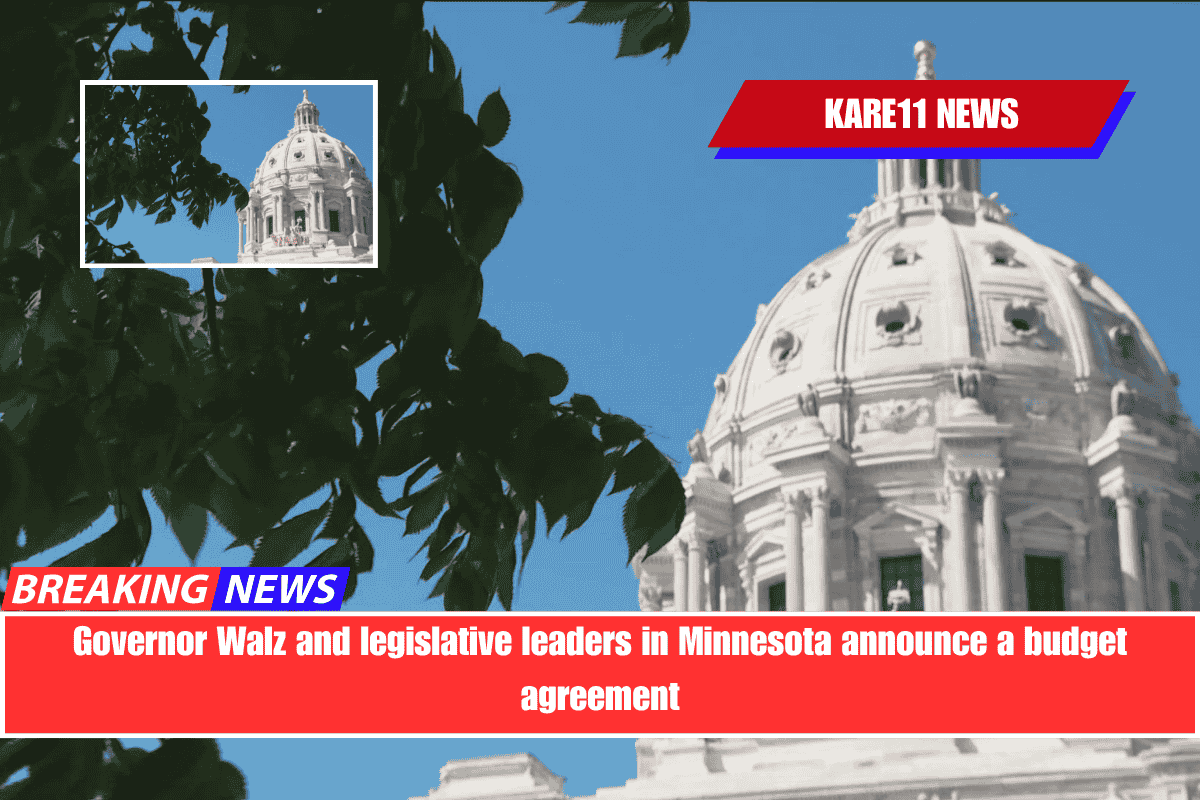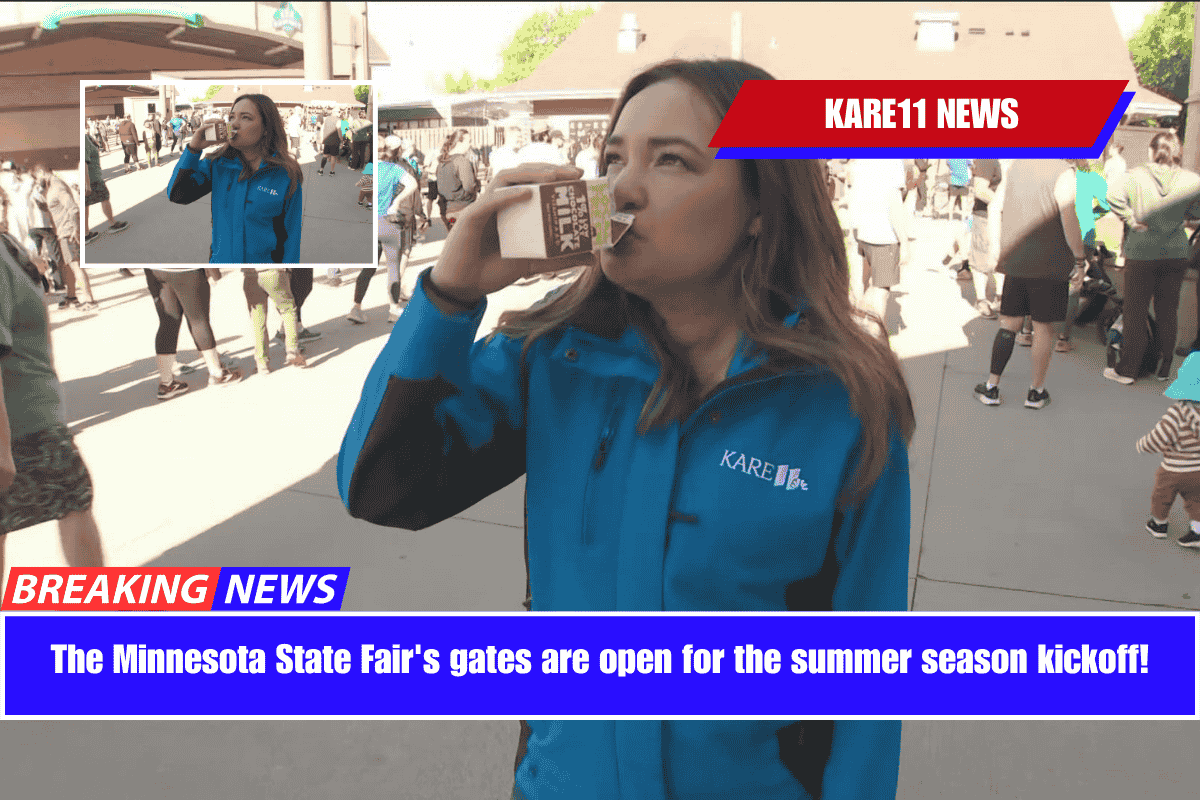ST PAUL, Minnesota — Minnesota Gov. Tim Walz and leaders of the divided legislature have reached an agreement on a budget deal that will guide lawmakers as they work to complete the next two-year budget by May 19.
The governor and legislative leaders had been negotiating for weeks, including several days of marathon sessions that lasted hours inside the Governor’s Reception Room. This year, the DFL controls the Senate by one seat, while the House is split between the DFL and Republicans.
“We are as evenly divided as any state in the history of our country has been,” said Walz, “and here we stand — with a deal.”
To reduce a projected $6 billion deficit by the end of the decade, the budget agreement calls for significant spending cuts in certain areas, including health and human services and transportation, to name a few. The agreement freezes K-12 education funding for the next two years, but proposes slowing growth in education spending in the following budget cycle.
Due to the nature of the divided legislature, negotiations over budget targets necessitated significant compromises from both parties, particularly on DFL-implemented provisions such as paid family leave, summer unemployment benefits for hourly school workers, and, most importantly, access to state health care for undocumented immigrants.
On the health-care issue, DFL and Republican leadership agreed to prevent undocumented adults in Minnesota from accessing MinnesotaCare, a program that serves low-income people who do not qualify for Medicaid. That eligibility will expire at the end of the 2025 calendar year.
However, the deal reached by party leaders requires that undocumented immigrants’ children continue to be covered by MinnesotaCare.
“Those who are here illegally can still enter the private market, so health care is not being denied in any way,” GOP House Speaker Lisa Demuth said. “It is not a sign of being uncaring. “It is a financial issue.”
“This will change people’s lives, and in some cases significantly, for the worse,” House DFL leader Melissa Hortman stated. “But it is a compromise, and under the compromise, we will be funding state government in the state of Minnesota.”
As word spread about the agreement inside the capitol, members of the DFL’s People of Color and Indigenous (POCI) caucuses began pounding on the door of the Governor’s Reception Room, demanding access to the news conference and chanting in opposition to removing adult undocumented immigrants from MinnesotaCare.
Later, POCI caucus leaders stated that they will not vote for any budget bill containing the provision. These negotiations will take place as part of the House and Senate conference committees on Health and Human Services spending.
“Although we protected the children, which is a very noble thing to do, those children will lose moms, dads, grandfathers, aunts, uncles, and siblings,” said DFL Rep. Cedrick Frazier, the POCI Caucus co-chair in the House. “We can’t vote for that. “We’re not prepared to accept that for our neighbors.”
As legislators and protesters gathered outside the budget press conference, Governor Walz acknowledged their concerns.
“A lot of work remains… you hear, it’s a passion. “This is what happens when you compromise,” Walz explained. “This is what it means to try and work together.”
If lawmakers do not pass their budget bills by the May 19 deadline, Gov. Walz will have to call a special session. Both the governor and legislative caucus leaders have stated that a special session is now likely, though depending on how much work is completed over the next four days, the extra session could be as short as one day.


















Leave a Reply